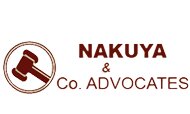Best Tax Increment Financing Lawyers in Kampala
Share your needs with us, get contacted by law firms.
Free. Takes 2 min.
List of the best lawyers in Kampala, Uganda
About Tax Increment Financing Law in Kampala, Uganda
Tax Increment Financing (TIF) is a public financing method that municipalities use to subsidize community improvement projects, infrastructure, and other development initiatives. In Kampala, Uganda, TIF is increasingly being explored as a means to stimulate economic growth, support urban development, and improve public services. TIF enables the city to use future tax revenues that result from increased property values due to development as a financing mechanism for infrastructure and other projects. While still gaining traction, its potential to leverage growth in the city is significant.
Why You May Need a Lawyer
Legal assistance in Tax Increment Financing can be pivotal for various reasons:
- Understanding Legal Framework: TIF involves complex legal and financial regulations that must be navigated carefully. A lawyer can help stakeholders understand these nuances.
- Project Proposal and Implementation: Lawyers can assist developers and municipalities in drafting proposals and agreements that comply with relevant laws.
- Negotiation and Mediation: Legal experts are crucial in negotiating terms between developers, government bodies, and other stakeholders.
- Compliance and Risk Management: Ensuring projects comply with local laws and managing any legal risks associated with TIF projects.
- Dispute Resolution: In cases where disputes arise, legal counsel can provide representation and mediate conflicts effectively.
Local Laws Overview
Tax Increment Financing in Kampala is regulated by a combination of national, regional, and local laws. Some key aspects include:
- Legal Structure: TIF must align with the broader urban planning and development frameworks set by the Ugandan government.
- Approval Processes: Extensive approval processes involve multiple government agencies to ensure that projects are viable and beneficial to the community.
- Public Participation: Mechanisms for public consultation and engagement are embedded in the process to ensure transparency and community buy-in.
- Financial Regulations: Policies on how tax increments are assessed, allocated, and managed are governed by fiscal policies applicable to local governments.
Frequently Asked Questions
1. What is Tax Increment Financing?
Tax Increment Financing (TIF) is a public financing method used to support development projects by using future tax increments resulting from increased property values.
2. How is TIF used in Kampala?
In Kampala, TIF is used to finance infrastructure improvements and urban development projects that aim to foster economic growth and community enhancement.
3. Who can initiate a TIF project?
TIF projects can be initiated by local government entities, developers, or private stakeholders interested in undertaking urban development projects.
4. What are the benefits of TIF?
TIF supports infrastructure development without raising taxes, incentivizes private investment, and can drive economic growth through revitalization initiatives.
5. What risks are associated with TIF?
Risks include project failures, increased financial burdens if tax increments do not meet projections, and potential displacement of residents or businesses.
6. How are tax increments calculated?
Tax increments are calculated based on the increase in property tax revenues resulting from the rise in property values within the TIF district over a designated base level.
7. Are there any limitations on TIF projects?
TIF projects must comply with statutory limitations on the duration of tax increment periods and must align with public interest objectives and urban plans.
8. How is public input gathered for TIF projects?
Public input is typically gathered through consultations, hearings, and public meetings organized by municipal authorities to ensure transparency and community involvement.
9. Can TIF be used for residential projects?
Yes, TIF can support mixed-use developments that include residential components, especially those aimed at affordable housing or urban renewal.
10. How do I get involved in a TIF project?
Interested parties can engage with developers, local government meetings, and public consultations where TIF projects are discussed, and opportunities for participation presented.
Additional Resources
For further assistance, consider reaching out to:
- Uganda Investment Authority: Offers guidance on investments and development projects within Uganda.
- Kampala City Council Authority (KCCA): Provides information on urban planning initiatives and TIF processes in Kampala.
- Ministry of Finance, Planning, and Economic Development: Oversees financial policies and regulations that affect TIF.
- Local Development Agencies: Offer resources and support for stakeholders involved in community development initiatives.
Next Steps
If you require legal assistance with Tax Increment Financing in Kampala, consider the following steps:
- Consult a Legal Expert: Seek advice from a lawyer with expertise in real estate and municipal law to understand your legal obligations and protections.
- Engage with Relevant Authorities: Contact local government bodies involved in TIF to gather necessary documentation and information.
- Prepare Documentation: Ensure all required legal and financial documentation is in order before proceeding with a TIF project.
- Participate in Public Consultations: Attend public discussions to stay informed about TIF projects and contribute your perspective.
- Review Regulatory Compliance: Work with your legal counsel to ensure your project meets all regulatory requirements and aligns with community objectives.
Lawzana helps you find the best lawyers and law firms in Kampala through a curated and pre-screened list of qualified legal professionals. Our platform offers rankings and detailed profiles of attorneys and law firms, allowing you to compare based on practice areas, including Tax Increment Financing, experience, and client feedback.
Each profile includes a description of the firm's areas of practice, client reviews, team members and partners, year of establishment, spoken languages, office locations, contact information, social media presence, and any published articles or resources. Most firms on our platform speak English and are experienced in both local and international legal matters.
Get a quote from top-rated law firms in Kampala, Uganda — quickly, securely, and without unnecessary hassle.
Disclaimer:
The information provided on this page is for general informational purposes only and does not constitute legal advice. While we strive to ensure the accuracy and relevance of the content, legal information may change over time, and interpretations of the law can vary. You should always consult with a qualified legal professional for advice specific to your situation.
We disclaim all liability for actions taken or not taken based on the content of this page. If you believe any information is incorrect or outdated, please contact us, and we will review and update it where appropriate.
















